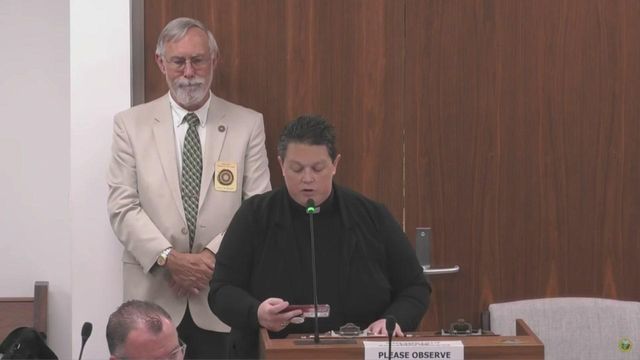Federal Officials Reduce Flue-Cured Quota for 1998
The bad news for tobacco farmers is that the federal flue-cured quota for 1998 will be sharply less than this year's quota.
The good news is that it could have been worse.
The U.S. Department of Agriculture on Monday reduced the federal flue-cured tobacco quota for 1998 to 807.6 million pounds, down about 17 percent from this year's quota of 973.8 million pounds.
Despite the expected jolt to North Carolina's economy, state officials expressed gratitude to U.S. Agriculture Secretary Dan Glickman for softening what could have been a 20 percent decrease.
``Tobacco farmers will have a tough year in 1998, ... but it is satisfying to see the secretary of agriculture place faith in our tobacco program and work to minimize the cuts in the amount of tobacco grown,'' state Agriculture Commissioner Jim Graham said in a prepared statement.
Next year's quota is based partly on the purchase intentions of domestic cigarette makers, who announced earlier this month that they expect to buy about 454 million pounds of tobacco next year.
Agriculture officials combined that figure with a three-year average of about 372 million pounds in unmanufactured exports, then subtracted 42.4 millions pounds to compensate for this year's unusually large amount of surplus leaf.
Glickman then used his discretion to add 23.5 million pounds to the quota, resulting in a final figure of 807.6 million pounds.
``While we're disappointed that our tobacco farmers are going to have a tough year through this quota reduction, I'm pleased Secretary Glickman heard our call to use the full 3 percent of his discretion to soften the blow to our growers,'' said Gov. Jim Hunt. ``We are going to continue to do whatever it takes to protect our farmers, their families, and their livelihood.''
The quota reduction was not a surprise, given an expected decrease in demand because of the proposed national tobacco settlement and large amounts of surplus leaf that remains unsold in warehouses.
Still, officials in North Carolina, the nation's top producer of flue-cured tobacco, expressed dismay at the announcement.
``It's very disappointing to see the numbers as low as they are,'' said Charlie Finch, administrative operations manager for the Flue-Cured Tobacco Stabilization Corp. ``It's going to be tough for everyone.... It's not only going to impact the farmers, but the service industry that services these farmers.''
North Carolina agricultural officials had estimated that a 20 percent reduction in the quota could cost the state's economy $200 million to $300 million.
``Even though the quota's been greatly reduced, we're just very glad the secretary used his discretionary authority to raise the quota back up,'' said William Upchurch, tobacco program administrator for the state Department of Agriculture. ``Compared to what we're up against, we're satisfied.''
The announcement of the quota reduction came late Monday afternoon, and USDA officials said a breakdown of state figures would not be available until today.
``We really didn't know what the numbers were going to be until about 15 minutes ago,'' Verner Grise, director of the tobacco and peanut analysis staff for the USDA's Farm Service Agency, said Monday evening.
Federal officials also announced Monday that the national acreage allotment for 1998 is 386,782 acres, down from 466,379 acres this year. The national average yield goal remains unchanged at 2,088 pounds per acre.
The price support level for the 1998 crop is $1.628 per pound, up .7 cent from 1997.
By RANDALL CHASE,Associated Press Writer Copyright ©1997 Associated Press. All rights reserved. This material may not be published, broadcast, rewritten, or distributed.








